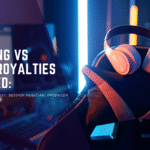Nigeria’s music industry is growing rapidly. Afrobeats has become one of the world’s most celebrated sounds, with Nigerian artists earning global attention and breaking into international charts.
As more musicians learn to release their songs on platforms like Spotify, Apple Music, YouTube Music, and Boomplay, one common confusion remains: understanding the difference between a music publisher and a music distributor.
Both play vital roles in helping artists earn from their music, yet they handle completely different parts of the business. Knowing how each works is essential for any artist who wants to build a lasting and profitable career in Nigeria’s music industry.
Let’s break down the real differences simply and clearly.
What is a Music Publisher?
A music publisher works with the composition of a song. The composition includes the lyrics and melody written by a songwriter. The publisher’s main job is to manage the rights tied to this musical work.
In simple terms, a publisher helps you register, protect, and earn money from your songs. They make sure your music is properly listed with music royalty collection bodies in Nigeria and abroad, such as COSON, MCSN, PRS (UK), ASCAP, and BMI (US).
Publishers also help license your songs for use in TV shows, adverts, films, or video games, a process known as sync licensing.
Each time your song is played on radio, performed live, featured in a film, or covered by another artist, the publisher collects music royalties on your behalf. For example, if your song appears in a Netflix movie, a publisher ensures you get paid for that use.
At Afro Soundtrack, we understand how easy it is for talented African artists to miss out on their publishing income simply because their songs are not properly registered or tracked globally. That’s why we offer full publishing administration built specifically for African and Afrobeats artists.
We help artists go beyond local registration by connecting them to international music royalty networks, making it possible to collect income wherever their music is played.
Many Nigerian songwriters are still not properly registered to collect publishing royalties worldwide. As a result, a large portion of income from their compositions goes unclaimed each year. This shows why professional publishing support is not just helpful, but essential for serious artists who want to turn their music into a real business.
What is a Music Distributor?
A music distributor handles the sound recording of a song, also known as the master recording. This is the actual version performed and recorded by the artist.
The distributor’s main job is to make this recording available to the public and collect the money it earns from platforms and stores.
Distributors collect revenue from the master recording and pay the artist or label after taking a small commission, usually between 20 and 30 percent. They also provide analytics, chart reports, and sometimes assist with playlist pitching or marketing.
In simple terms, while a publisher works with the composition (lyrics and melody), a distributor handles the sound recording that people stream or download. Both sides earn different music royalties but are equally important.
Here are the main functions of a music distributor vs a music publisher in Nigeria:
1. Digital Distribution vs Metadata Ingestion/Matching:
This is the most common form today. Digital distributors upload an artist’s songs to streaming and download platforms such as:
- Streaming Services: Spotify, Apple Music, Audiomack, Boomplay, YouTube Music
- Download Stores: iTunes and Amazon Music
- Local Platforms: Some distributors also make music available on local Nigerian platforms and as caller ringback tunes on networks like MTN, Glo, and Airtel.
Publishers ingest a songwriter, producer or session musician metadata to match the data information uploaded by the music distributor.
2. Music Royalty Collection (Sound Recordings vs Composition Royalty Collection):
Distributors collect royalties from the use of sound recordings on digital platforms. This includes income from streaming and downloads. They then pay the artist or label after subtracting their commission.
Publishers, on the other hand, handle royalties tied to the music composition, which includes the lyrics, melody, and arrangement that make up the song itself. They collect income whenever the music is performed, broadcast, or reproduced, ensuring songwriters and producers are paid for their creative contribution.
3. Reporting and Analytics:
Distributors give artists or labels access to data showing how their music performs. This includes stream counts, listener locations, and audience demographics. Distributors give artists or labels access to data showing how their music performs. This includes stream counts, listener locations, and audience demographics.
Publishers, on the other hand, provide detailed reports showing where and how a song is earning royalties. This includes performance data from radio airplay, TV use, live performances, film placements, and digital platforms worldwide. Good publishing reporting helps songwriters see which territories or uses generate the most income and identify missed royalty opportunities.
At Afro Soundtrack, we combine publishing transparency with global data insights so African music creators can understand their song’s true reach and revenue potential.
4. Revenue Sharing:
The distributor collects royalties from the recording side through streams, downloads, and sales, and then pays the artist or label after taking a fee.
The publisher collects royalties from the composition side when your song is performed, licensed for media, or reproduced, and then pays the songwriters and producers their share after deducting a small administration fee.
In most publishing administration deals, the publisher usually keeps around 10% to 25% of the royalties they collect as their service fee, while the rest goes to the songwriter.
For distributors, the structure varies. Some charge a flat fee per release, while others take a percentage of your earnings.
How Music Publishers and Music Distributors Work Together in Nigeria
Music publishers and distributors hold different but complementary roles. The publisher handles the song rights (lyrics, melody, composition) while the distributor handles the recording rights (the master). When they coordinate well, an artist captures income from every use of their music.
1. Matching metadata and registration
To make sure music royalties reach you, the publisher registers your composition with PROs or CMOs (like COSON, MCSN) and international societies. The distributor uploads your recording with correct metadata (artist name, ISRC, credits).
2. Collecting music royalties from different sources
Each time a song is streamed, performed, or used in media, different music royalties are created. The distributor collects income from the recording side, while the publisher collects royalties from the composition side, such as performance and mechanical royalties.
3. Sync licensing deals
When a song is placed in a film, advert, or TV show, both the song and the recording must be cleared. The publisher handles permission for the song itself, while the distributor or label clears the master recording.
4. Reporting, audits, and transparency
Both publishers and distributors provide important data to artists. Distributors share reports on streams and platform performance, while publishers report on licensing and performance royalties.
Typical services Music Publishers and Music Distributors Provide, and where confusion happens
What Music publishers do:
- Register songs with PROs or CMOs worldwide, such as COSON or MCSN.
- License songs for sync placements, covers, and mechanical reproduction.
- Track song usage, collect royalties, and distribute the writer’s share.
What Music distributors do:
- Deliver masters to streaming platforms and stores like Spotify, Apple Music, and Boomplay.
- Collect royalties from the master recordings and provide reports and payouts.
- Offer optional services such as marketing, playlist pitching, and physical distribution.
Where the confusion between Music Publishers and Distributors happens:
Some distributors now offer “publishing administration” as an extra service. While it may sound convenient, it can limit your ability to work with a dedicated music publisher later. Always read the terms carefully before signing up.
How Afro Soundtrack supports you:
Afro Soundtrack helps Nigerian artists manage both sides correctly. We ensure your songs are registered globally, your music royalties are collected from multiple territories, and your rights remain protected.
Practical Checklist for Nigerian Songwriters and Artists (Step by Step)
- Write down your splits before release
Decide who wrote what and fill out a split sheet. Make sure everyone signs it and keep it safe. This simple step prevents future disputes about ownership and royalties.
- Register your composition properly
Start by registering your work with the Nigerian Copyright Commission (NCC) through eRegistration. Then register with a collecting society such as MCSN or COSON to make sure you are set up to receive performance royalties.
- Plan your distribution
If you are releasing music independently, choose a digital distributor or aggregator that provides detailed reporting and fair fees. If you work with a label or distributor, understand exactly what services they provide, what percentage they take, and how often you will be paid.
- Use a publishing administrator for global reach
If you want your royalties collected worldwide without giving up your copyright, use a publishing administrator like Afro Soundtrack. We help artists register their songs internationally, track royalties across platforms, and ensure every payment due finds its way back to you.
- Read every publishing contract carefully
Before signing with any publisher, look out for “life-of-copyright” clauses or contracts that give the publisher full control over sync deals. Always make sure you have audit rights and regular accounting updates. Take your time because good contracts protect your long-term earnings.
- Register your recordings accurately
When uploading through your distributor, include the correct ISRC code, artist name, and songwriter credits. Proper metadata ensures both your master and publishing royalties are tracked and paid correctly.
Typical Music Publishing deal types and common numbers
(i) Publishing administration deal: In this setup, you keep full ownership of your songs while a publishing administrator collects royalties on your behalf for a small fee.
(ii) Co-publishing: In a co-publishing deal, you and the publisher share the publisher’s half of royalties, usually 50/50. This reduces your overall share but often comes with benefits such as advances, marketing support, and help securing sync placements.
Distribution models: Music distribution deals come in a few common forms:
- Flat per-release fee
- Subscription model
- Percentage-based models, where the distributor takes a cut of revenue in exchange for additional services like playlist pitching or marketing support.
Choose the model that fits your release schedule and budget. Artists who release music frequently may prefer a subscription model, while those who focus on fewer, larger projects may benefit from a per-release or percentage-based deal.
Music Distribution Red Flags
- Watch out for agreements that do not include audit or reporting rights.
- Be cautious if a distributor claims to “handle publishing” but does not clearly explain which royalties they actually collect.
Music Distribution Negotiation Tips
- Always record and agree on splits in writing, including ISRC and writer credits for every release.
- Ask distributors how quickly they pay, how often, and what deductions they make before signing any deal.
Afro Soundtrack: The Best Music Publishing Service for Afrobeats Artists
Afro Soundtrack offers full publishing administration made for African and Afrobeats artists. Unlike generic global services, we understand how African music travels across borders from local radios to placements on Netflix and other global platforms.
At Afro Soundtrack, we help artists register their works both locally and internationally, making sure royalties are tracked and collected everywhere your music is played. We are connected to global royalty networks, so your earnings never go missing.
For Nigerian artists, songwriters, and producers who want to protect their rights, collect every royalty, and still own their songs, Afro Soundtrack is the most reliable publishing partner to grow with.
Sign up with Afro Soundtrack today and start collecting every royalty your music earns around the world.


